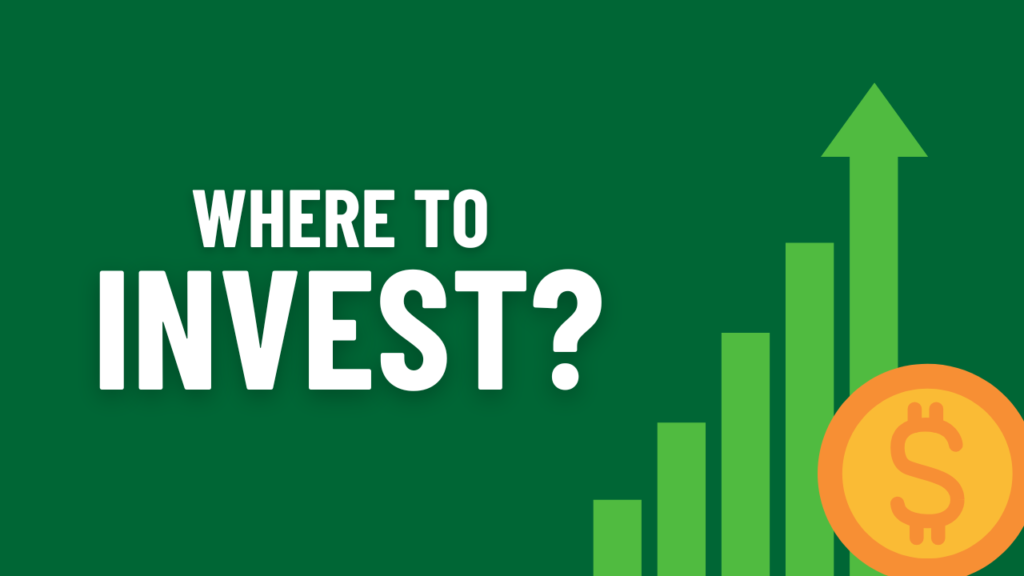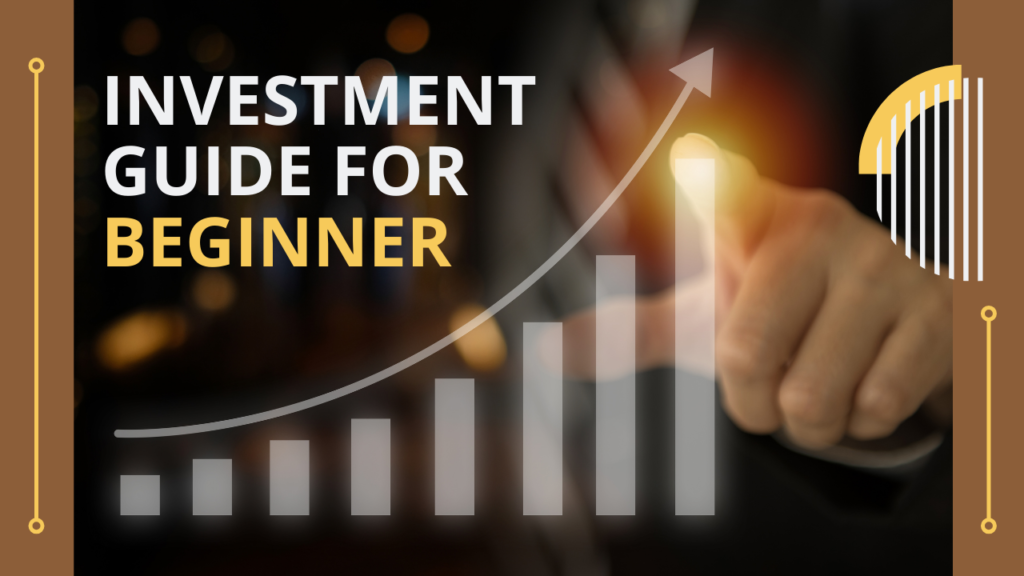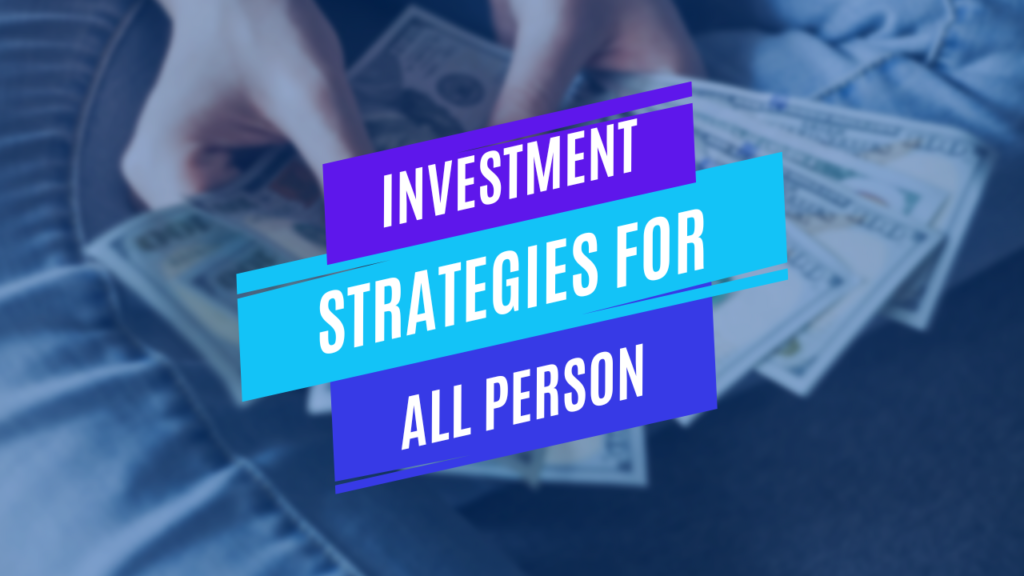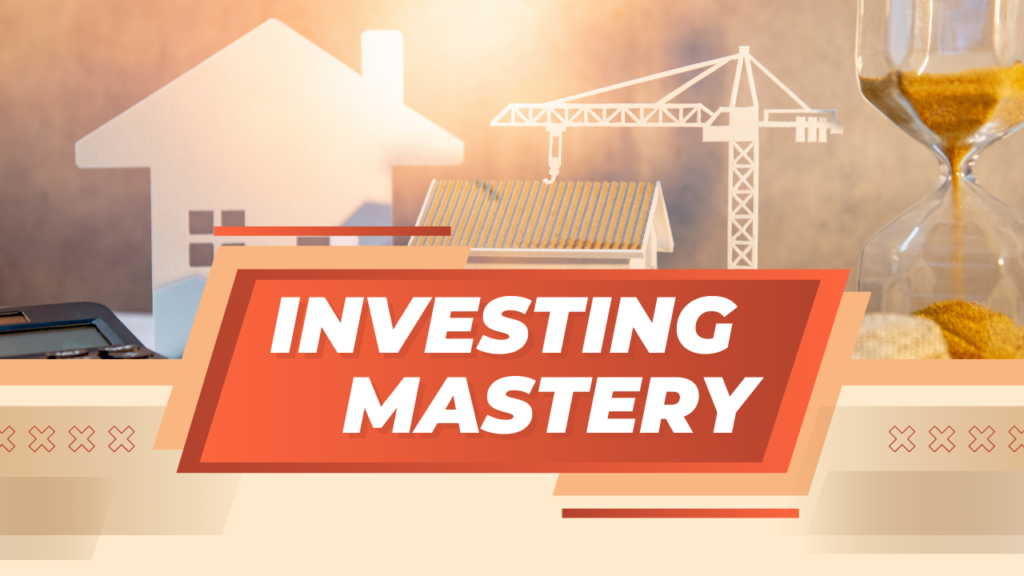Table of Contents
ToggleInvestment and its Best return

Introduction
Investing is one of the most effective ways to grow wealth over time. Unlike saving, which simply preserves funds, investing actively works to increase the value of your money by putting it into assets that can appreciate, generate income, or both. However, investment is not without risk, and understanding various types of investments, risk levels, and strategies is essential for success.

In this guide, we’ll cover what investment is, why it’s important, the different types of investment vehicles available, strategies for beginners and advanced investors, and tips for building a successful investment portfolio.
Importance of Investment Why it is important

When a person or an organisation starts earning a sufficient amount of money then next question arises where the extra money should invest to multiply it manifold.
In this situation the knowledge of investment is important for a person and for an organisation also.
In this blog for investment, I am discussing for investment strategies for a person only not for an organisation.
Purpose of Investment
What is Investment?

Investment is the act of allocating money into assets or financial products with the expectation that they will generate returns over time. This can include everything from stocks and bonds to real estate, mutual funds, commodities, and more.
Why Invest?

There are several reasons why individuals choose to invest:
- Wealth Growth: Investments typically offer a higher return than a traditional savings account.
- Beating Inflation: Inflation erodes purchasing power over time; investments help counteract this by growing your money.
- Financial Goals: Investing is a means to fund major life goals like buying a home, starting a business, or retiring comfortably.
- Passive Income: Many investments, such as real estate or dividend stocks, can generate ongoing income.
Overall
The one and only purpose of investment is Growing Wealth and Building a Secure Future

With our earned money without any further labour,
Every person wants a secure financial future by earning and saving his earned money for his secure future for this purpose there are number of investment options in the market for investment of his money
I m going to discuss all the option one by one
Simple investment in banks

Banks are financial organisation available for every person very easily there are three types of most popular investment plan for very person
- Saving account
- Fixed Deposits
- Recurring Deposits
Any person can invest his money in all the above three plans available for them. They can choose according to there choice for investment. These option are safe but returns are very low or moderate. Investment in all the above options in bank are easy and safe.
Investment in Gold Bond

Investment in gold is very attractive and popular in Indian people but there are three options in investment in gold
1st is purchasing physical Gold and sell after some time. This is one type of investment in Gold
2nd method for investment in Gold is purchase in commodity market and book the profit’
3rd option is more safe and secure for investment in Gold that in purchase the Gold bond through the bank and get attractive return of your investment.

I recommend the 3rd option for the investment in Gold because it has low risk and guaranteed returns of your investment.
Main features of Investment in Gold Bonds Issued by Bank
It is issued by Nationalised bank two times in a year
In the month of May and December
It is issued on the current price of gold in market at the time of your investment in the form of bond

You will get 2 to 3 percent of annual interest on your investment this return is GST chargeable at the time of investment.
This is locked period investment and time period is Eight years
At the time of completion of your time period you have two options one is either you can take cash or physical Gold of your investment that you have did at the time of purchasing the gold bond. You will get the current market price of gold time at the time of completion of bond and this return is very high and secure of your investment.
One important thing to be noted that in the investment in gold Bond no risk, in physical investment in Gold there are number of risks, you may be cheated by someone, risk of theft, may be misplace or any other type of risk. But Gold bond is hundred percent secure.

Investment in Gold through commodity market is highly risky and needs a lot of knowledge and experience. So, if you have not experience enough so do not take risk of commodity market.
Investment for the saving of Income tax

This is most popular among all type of investor to invest; income tax saving is the most popular for investment. Most of the investors starting their investment journey through this tool.
Any person can invest the amount of one lakh fifty thousand (150000) in all the schemes issued by Indian government for Income tax saving Under section 80 (C) and 10 (10D)
There are following options in the investment market to invest in for saving income tax under section 80(C) & 10(10D)
- Life Insurance
- PPF
- Mutual Fund (ELSS)
- Post Office Scheme NSC etc
- Some special FDs issued by government at the time of budget
The limit of maximum investment in the above-mentioned schemes is maximum one lakh fifty thousand only (1,50,0000).
Life Insurance

Life insurance is very important investment tool for every person a person should always take a life insurance policy while starting his investment journey. It has many features for the investor, such as life risk cover, saving, income tax saving option, easy loan, you can mortgage your insurance policy in any nationalise bank in the emergency when you need money. It has no risk of loss at any stage only thing is that you have follow all the rules of life insurance company.
PPF (Public Provident Fund)
This is another option of investment for the purpose of income tax saving and saving money anyone can open PPF Account in any nationalise bank, private bank or post office.

The minimum amount of investment is 500 rupees yearly and maximum amount 1,50,000 rupees yearly its present time rate of interest is 7.1% and it is revised every year at the time of union budget by the finance minister of India.
The time period of its maturity if fifteen years and after fifteen years one can extend it further for five years three times
The most important feature of PPF is its return is high and non-taxable.
You will get income tax rebate in the investment in the PPF account under section 80(C) .
Mutual Fund (ELSS)

This is another option of the investment for income tax rebate and very attractive also. In ELSS mutual fund option we can invest any amount of money but only one lakh fifty thousand is consider for income tax rebate.

It can be purchased through any mutual fund advisor or online both options are good for investment in mutual Funds ELSS for income tax rebate.

Post Office investment
In our country there are number of post office in the interior region of our country so it is make easy to do investment in schemes of post office. In post office there are limited options but easy and secure.

One can invest in NSC (National Saving Certificate). In NSC investment for tax rebate is maximum 1,50,000.
But I not recommend for savings in schemes of post office because it is very complicated and giving low returns.
Do investment in schemes of post office only if other options are not easily available.

But one thing is very good with post office that is investment in post office is 100 % secure and nothing to worry.
Some Special FDs Offered by government time to time
When government of India presents union budget then sometimes government announces some special FDs of saving for income tax rebate. For this follow the announcement of union budget.

Types of Investment Assets
Understanding different asset classes is foundational for making informed investment decisions. Here are some popular types:

1. Stocks
Stocks, or equities, represent ownership in a company. When you buy stocks, you’re buying a piece of a company, and your returns depend on the company’s performance and market conditions. Stocks can offer high returns but come with high volatility.

Pros of Stock Investment
- Potential for high returns.
- Access to dividends if the company distributes profits.
Cons of Stock Investment
- High risk; stocks can be highly volatile.
- Prices are affected by market conditions, economic changes, and company performance.

2. Bonds
Bonds are essentially loans you make to corporations or governments. In return, you receive interest payments until the bond matures, at which point you get your initial investment back.
Pros of Bond Investment
- Lower risk compared to stocks.
- Bonds are often more stable and provide predictable income.
Cons of Bond Investment
- Lower returns compared to stocks.
- Sensitive to interest rates—when rates go up, bond prices generally fall.
3. Mutual Funds and ETFs
Mutual funds and ETFs pool money from multiple investors to purchase a diversified portfolio of stocks, bonds, or other securities. They are managed by professionals and offer a way to access a broad range of assets.

Pros of Mutual Funds and ETFs
- Diversification lowers risk.
- Managed by professionals, suitable for those who want a hands-off approach.
Cons of Mutual Funds and ETFs

- Fees can reduce returns.
- Mutual funds can be less liquid than stocks, as they can only be traded at the end of the day.
4. Real Estate
Investing in real estate involves buying property, either to rent out for income or to sell at a profit. Real estate is a tangible asset, and it often appreciates over time.

Pros of Real Estate Investment
- Tangible asset that often appreciates in value.
- Ability to generate rental income.
Cons of Real Estate Investment
- High upfront costs and maintenance.
- Lack of liquidity; selling property can take time.

5. Commodities
Commodities include natural resources like gold, silver, oil, and agricultural products. They are tangible assets and can serve as a hedge against inflation.
Pros of Commodity Investment
- Can act as a hedge against inflation.
- Demand and supply cycles provide unique investment opportunities.
Cons of Commodity Investment
- Highly volatile, as prices are affected by global supply and demand.
- Requires specific knowledge and may have higher transaction costs.
6. Cryptocurrency

Cryptocurrency is a digital or virtual currency that uses cryptography for security. Bitcoin and Ethereum are popular examples, and they represent a high-risk, high-reward investment option.
Pros of Cryptocurrency Investment
- Potential for very high returns.
- Decentralized and immune to government interference.
Cons of Cryptocurrency Investment
- High volatility and risk.
- Regulatory issues and security concerns.
Key Investment Strategies
1. Growth Investing
This strategy focuses on investing in companies that are expected to grow at an above-average rate. Growth investors look for companies in expanding industries or sectors.

Advantages
- Potential for substantial returns if the company’s stock price increases.
Challenges
- High risk, as growth companies may also be highly volatile.
2. Value Investing
Popularized by Warren Buffett, value investing involves looking for stocks that are undervalued by the market. Value investors believe these stocks will eventually reflect their true worth.

Advantages
- Lower risk compared to growth investing; based on fundamental analysis.
Challenges
- Requires in-depth research and patience as undervalued stocks take time to appreciate.
3. Dividend Investing
Dividend investing involves buying stocks that regularly pay dividends. These companies distribute part of their profits back to shareholders.

Advantages
- Provides a regular income stream.
- Dividend stocks tend to be from more stable, established companies.
Challenges
- Dividend yields may be modest; companies may reduce or eliminate dividends in hard times.
4. Index Fund Investing
Investing in index funds involves buying funds that track a specific market index, like the S&P 500. This is a passive strategy that aims to match, not beat, market performance.

Advantages
- Low fees and minimal effort.
- Provides broad diversification.
Challenges
- Limited to the performance of the overall market.
5. Dollar-Cost Averaging
Dollar-cost averaging (DCA) is an investment strategy where you invest a fixed amount regularly, regardless of market conditions. This reduces the risk of timing the market.
Advantages
- Reduces impact of volatility.
- Suitable for beginners.
Challenges
- Slow wealth accumulation.
Risks Associated with Investment
All investments carry risk, but the level of risk varies by asset class. Common risks include:
- Market Risk: The value of investments can decline due to economic factors, interest rates, or market sentiment.
- Liquidity Risk: Certain assets, like real estate, may be hard to sell quickly.
- Credit Risk: For bond investors, there’s a risk that the bond issuer will default on payments.
- Inflation Risk: The purchasing power of returns may decrease over time if inflation rises faster than investment returns.
How to Build a Diversified Portfolio
A diversified portfolio spreads investments across various asset classes to reduce risk. Here’s how to approach diversification:
- Assess Your Risk Tolerance: Younger investors may choose more stocks, while older investors might lean towards bonds.
- Choose a Mix of Assets: Aim for a balance of stocks, bonds, real estate, and perhaps some alternative investments like commodities or crypto.
- Regularly Rebalance: Over time, some investments may outperform or underperform, skewing your allocation. Periodically rebalance to maintain your desired asset mix.
Investment Tips for Beginners
- Start Early: The power of compounding grows wealth over time.
- Educate Yourself: Read books, attend workshops, and follow financial news.
- Start Small: You don’t need a lot of money to begin investing; start with a small amount and build gradually.
- Use Retirement Accounts: Take advantage of tax benefits through IRAs or 401(k)s.
- Stay Disciplined: Avoid impulsive decisions; investment is a long-term commitment.
Advanced Investment Techniques
For those with experience, consider advanced techniques like:
- Options and Futures: These derivatives can provide leverage but also come with high risk.
- REITs (Real Estate Investment Trusts): Invest in real estate without directly buying property.
- Private Equity: Invest in private companies not listed on public exchanges, suitable for high-net-worth individuals.
Now I am going to show you the most important investment of your life and that is Investment in knowledge
Some Other Type of Investments rather than money
I have discussed above the monetary investment now I going to discuss with you the some other type of investment that is more precious than monetary investment and its returns are also priceless and valuable. These type of investment are as follows
- Investment in knowledge
- Investment in health
- Investment in relationship
- Investment of time
investment in knowledge Or Investment in Yourself

- All above type of investment are very important and give us life with full of happiness and meaningful life, I am going to discuss all type one by one bel
The above written line has very deep meaning all of us always try to learn something new, and if we pay some for that learning and if we purchase something to improve our knowledge then it is not an expenditure it is an investment and it come to us in the form of return after some time. So it is basic difference between investment and expenditure.

Investment always gives some return after some time and expenditure never return.
We are mostly misunderstanding the term and treat the investment as expenditure as not ready to pay the fees of any coach, expert or trainer. This is very big mistake of anyone in their life, so if you are getting some value, knowledge or training of an experienced person.
Investment in Health
The most important asset of our life is out body in other word it is our health so always invest in your health. As I saw around me most of the person are very careless about their health and avoid to invest in their health. Investment in health is the best investment of this universe.

There are two types of investment in health.
1st is investment of time with your body for this purpose we must do some physical activity with our body so that our body sweat if we are doing yoga, jogging, jumba, or any other physical activity daily then it is the investment of time with our body, we feels energise and and our body feels relaxed when do some physical activity with our body.

Investment in health through healthy and nutritious food
Apart from exercise we must invest in healthy food and food supplement.
Always care health of yourself and your family. Because once you loose your health you loose everything, If you have good health then every materialistic things comes to you automatically and you enjoy that also. So always do investment in your health.
Investment in relationship

This is another type of investment that we must always do, investment in relationship means you have to take care of each and every relation that you have, always take care of your beloved person.
Wish them on their birthday, wish them on their marriage anniversary, If someone in your contact or in friends achieve some rewards or awards so go to them and wish them, always take care of all the persons around you, in starting you will get nothing only some smiles of people but if you consistently do this you will get the tremendous results of your investment in relationship. In this world good relationship always works.

Investment of time
I can tell you a lot of things about investment of time, but this time I am telling you simple thing investment of time means the consistency. Do whatever you like but consistently it is important that do consistently. And consistency demands time. Every person has some talent naturally and that talent improves only when we invest some time to sharpen our talent this is the main feature of investment of time, always be near of your work it is important and do nor waste you time always invest your time and achieve something.
Conclusion
Investment can seem daunting, especially with the vast range of options available. However, with careful planning, education, and discipline, anyone can create a strategy that suits their financial goals and risk tolerance. From stocks and bonds to real estate and commodities, building a diverse portfolio can help secure your financial future.
By starting early, making informed decisions, and staying committed, you can enjoy the benefits of investment and work towards financial freedom and security.